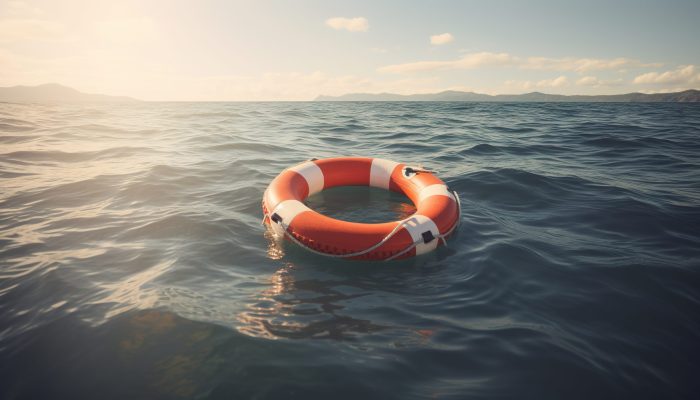
Holiday time. Finally, relaxation. Away from work. Just shut it down. Enjoy nature. Lying on the beach in the sun. Get to know foreign countries and cultures. Everyone is looking forward to this time every year. And the cybercriminals are already rubbing their hands. Tourists are their favorite destination because they are particularly careless with their data. So that you can still enjoy your holiday carelessly, we have today tips for you how to protect your data even on holiday.
The tickets are booked, the suitcases are packed, the neighbor is informed to pour the flowers – departure! But not so fast. Are you sure you thought about everything?
Cybercriminals are just waiting to hack into tourists’ mobile devices and spy on their data. Therefore, you should make some preparations when taking the smartphone, tablet or laptop with you on holiday.
In fact, the precaution begins when booking the trip. Always make sure that you are dealing with a reputable travel agency. Above all, avoid clicking on alleged bargain offers that you have reached by email or SMS. We emphasize it again and again: Do not click links in emails.
Cybercriminals know that the holiday period starts and attract with particularly great offers. For this purpose, they create partially complete online travel portals, which are equipped with a complete website and offers. Otherwise, these travel portals are of course just sound and smoke. Ignorant people should leave data there, which is then misused by the cybercriminals.
Therefore, trust only portals that you know or check online the reviews and reviews of other holidaymakers. Make sure these ratings are real.
For your trip you usually need some documents. The identity card, passport, visa or medical documents may be important for entering other countries. To keep them safe, security experts recommend that you carry copies of these documents on your smartphone or other mobile device. If a document is lost or stolen, you have a backup in the back.
The copies and generally all data on the mobile device should logically be backed up with password, fingerprint or pattern and in no case without the two-factor authentication. The authenticator from Reiner SCT is suitable for this.
Precaution is good, but does not necessarily protect. Therefore, you should also observe some safety instructions on holiday itself.
A simple hint, but often ignored: Do not let your things out of sight. Yes, the sea is tempting when the sun burns and the beach seems to glow. But if you leave your things unattended on the beach while swimming in the sea, don’t be surprised if you only have swimwear afterwards.
There are waterproof cases for smartphones and also tablets. The laptop shouldn’t be on the beach anyway. It is better to leave it in trusting hands at the hotel reception to take care of it.
For the best possible data protection, all devices should always be equipped with the latest updates. In addition, security software can protect against attacks.
Very tempting are open Wi-Fi spots at airports or in the hotel. These attract not only tourists, but also hackers. Cybercriminals find a gap here to access the data of others. Often you even set up your own Wi-Fi spot, via which the tourists then register and the data are already exposed.
In the best case, surf away from the sea using your own mobile data or buy a prepaid SIM card on site. Above all, never go to online banking or the company mailbox via open Wi-Fi networks. You should also avoid other areas where there is particularly important data. These are particularly interesting data for hackers.
Security experts agree that a VPN provides the highest level of security for their own data.
We know that the temptation is great to constantly share the most amazing pictures from the holiday on social media. But have you ever thought about what information you share with them? For example, that you are not at home.
Before the rise of the Internet, it was a criminal mess to decipher the address labels on travel cases at the airport. So criminals learned about who is traveling and whose house or apartment might be correspondingly unguarded. Today they get this information conveniently via social media. So be careful about revealing too much.
On site, social engineering is also a popular form of data acquisition. The attackers, pretending false facts, creep up the trust of the victims. The most famous form is phishing via e-mails. Phishing emails promise something that would help the victim, but instead the email taps the victim’s data.
However, social engineering also works outside the Internet. On holiday, for example, by distributing USB sticks to ignorant tourists. Hackers distribute USB sticks as a giveaway to tourists. On these USB sticks, however, there is already malware that installs automatically as soon as the USB stick connects to a laptop.
So we can only advise to be extra careful on holiday. Then the holiday becomes relaxing and not a hell trip. We wish you a good trip.